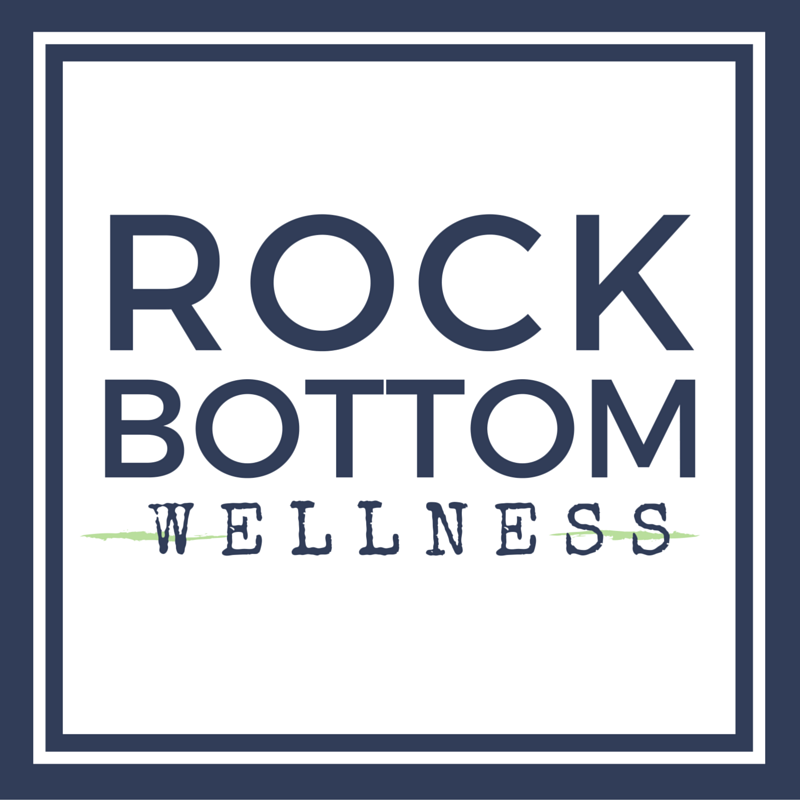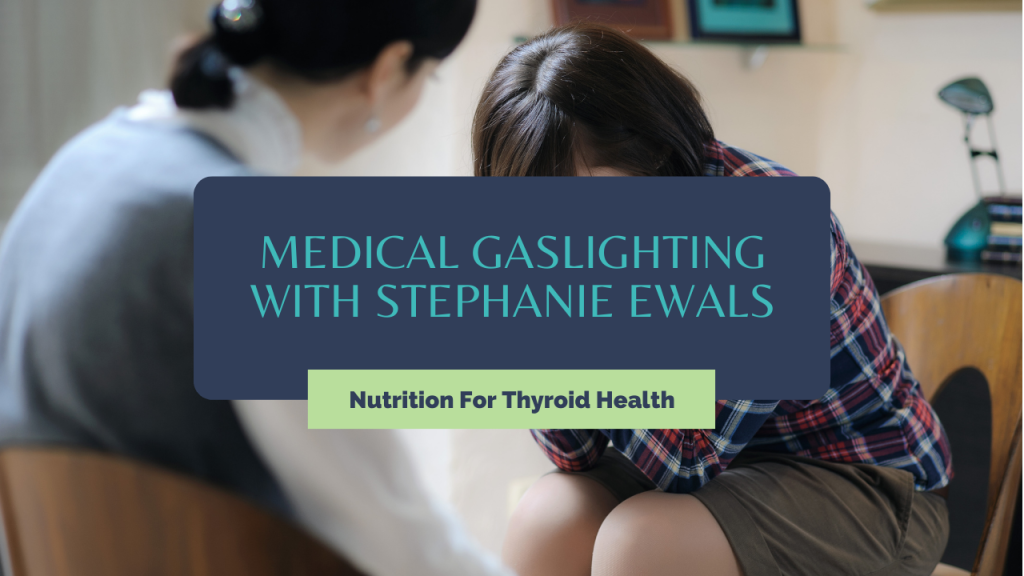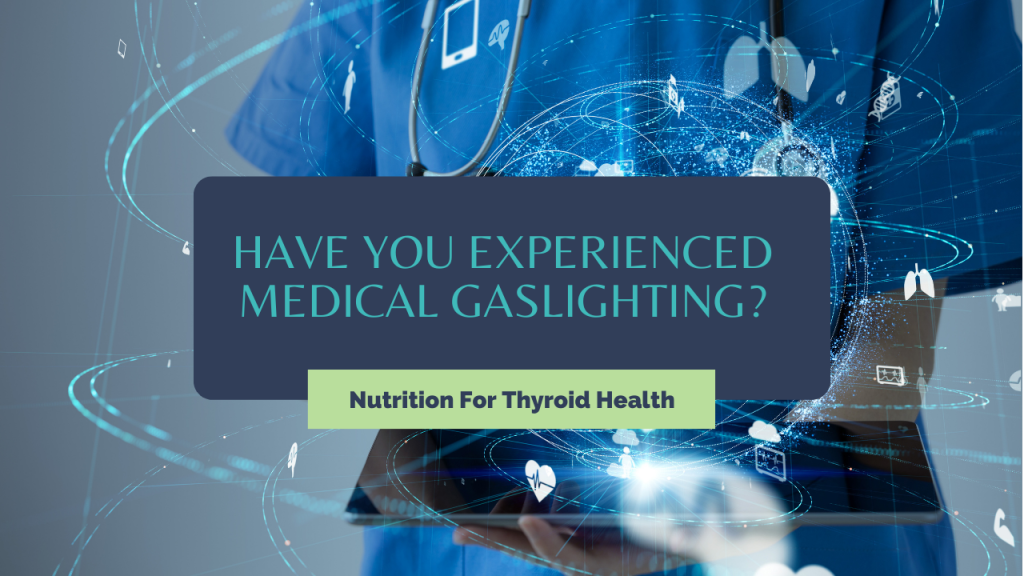Medical GasLighting With Stephanie Ewals
In a recent Fatigue Your Fix podcast episode, I sat down with Stephanie Ewals, a board-certified and licensed nutritionist and host of the Help for Hashimoto’s podcast. We discussed the topic of medical gaslighting — which has unfortunately become a bit of a buzzword lately. Here are some key takeaways from our conversation.
Common Gaslighting Tactics
Medical gaslighting is a real phenomenon whereby people visit their traditional medical practitioner with a range of symptoms and basically get dismissed or told they are “just getting older.”
To be fair, this gaslighting isn’t necessarily the doctor’s fault; they are taught a certain way, and they typically have only a few minutes to see patients. They are also part of a broken healthcare system that isn’t set up to get to the root causes of problems, but rather to prescribe medications and address acute problems, not chronic illness.
What’s often more damaging, however, is the gaslighting that makes you feel discounted, dismissed, too emotional, lazy, or incapable of handling stress. So, for example, the person who could use a closer look at their thyroid instead gets put on an antidepressant or birth control — or offered a hysterectomy (more on that below). Let’s look at some of the most common forms of medical gaslighting.
“You’re Just Getting Older”
My story comes from dealing with years and years of struggling with really low energy and feeling sick and blah all the time — just always thinking, “Gosh, I think I have the flu” because I always felt kind of nauseous and unwell. It was easy to chalk up the fatigue, depression, and anxiety as just stress from college.
Even when I got my thyroid tested, the results always came back “normal.” And this is where the medical gaslighting began. Ultimately, it all culminated in a diagnosis of thyroid cancer many years down the road. Meanwhile, along the way, I had delayed my health progress because I was told I was just getting older, even in my early 20s.
“You’re a Woman, So This Is Normal”
Another one I’ve heard: “You’re a woman, and your hormones fluctuate. So that’s why you feel like A, B, and C.” Essentially, you’re told that you’re supposed to have migraines and headaches and be out of commission with heavy, horrible, disgusting periods because you’re a woman. “You can just take this birth control and that will solve all your problems,” they’ll tell you.
Over time, you get so used to experiencing medical gaslighting that you start to think you’re lazy, that you’re supposed to suffer, and that you should just accept the way things are because it’s supposedly “normal.”
“Get a Hysterectomy”
Stephanie recalls being told to try endometrial ablation for heavy periods, a process whereby you have a thin lining of tissue removed from the uterus. When she didn’t qualify for ablation, she was offered a hysterectomy.
This practice is more common than you might think, as Stephanie learned in speaking with a doctor who had seen countless 20-year-olds who had already undergone hysterectomies. She says, “Doctors would ask, ‘Do you plan on having kids?’ Well at 20, I didn’t plan on having kids either. And they said no. And then they’re like, okay, we’ll take your uterus out and then you won’t bleed anymore.”
Young women who make such a huge, life-altering decision at 20 years old will never get the chance to change their minds about having biological children.
Times Are Changing
Older generations took the doctor’s word as gospel, but nowadays, younger generations are no longer simply passengers on the bus when it comes to their health. They’re questioning doctors’ advice and taking a more proactive approach to their health needs. And if one provider is giving off gaslighting vibes, they’re beginning to see there’s no reason not to switch providers.
If you don’t take that proactive approach, your health issues could go on for decades before being properly diagnosed. You’ll prolong the issues instead of getting the help you need to start feeling better, faster. You might even wind up making a life-changing decision like getting hysterectomy or quitting gymnastics (one doctor’s advice given to a friend of Stephanie’s as a “remedy” for insomnia when she was a young teenager).
You see, doctors typically won’t tell you they don’t have the answer for you — whether for lack of a good referral network or an unwillingness to admit that something isn’t their area of expertise. Many doctors would rather leave you with a prescription than send you to a specialist or agree to further lab testing.
You must self-advocate, and you must do the work. As one of my clients recently reminded me, do something now that your future self will thank you for.
Let’s Connect!
Say goodbye to fatigue and hello to a full and vibrant life! Join me over in my Facebook group where we are talking all about how to take back control of your health!
Be sure to follow me on my Facebook, TikTok, Instagram and Pinterest for tips and tricks on how to use nutrition to live your very best life!
Medical GasLighting With Stephanie Ewals Read More »


